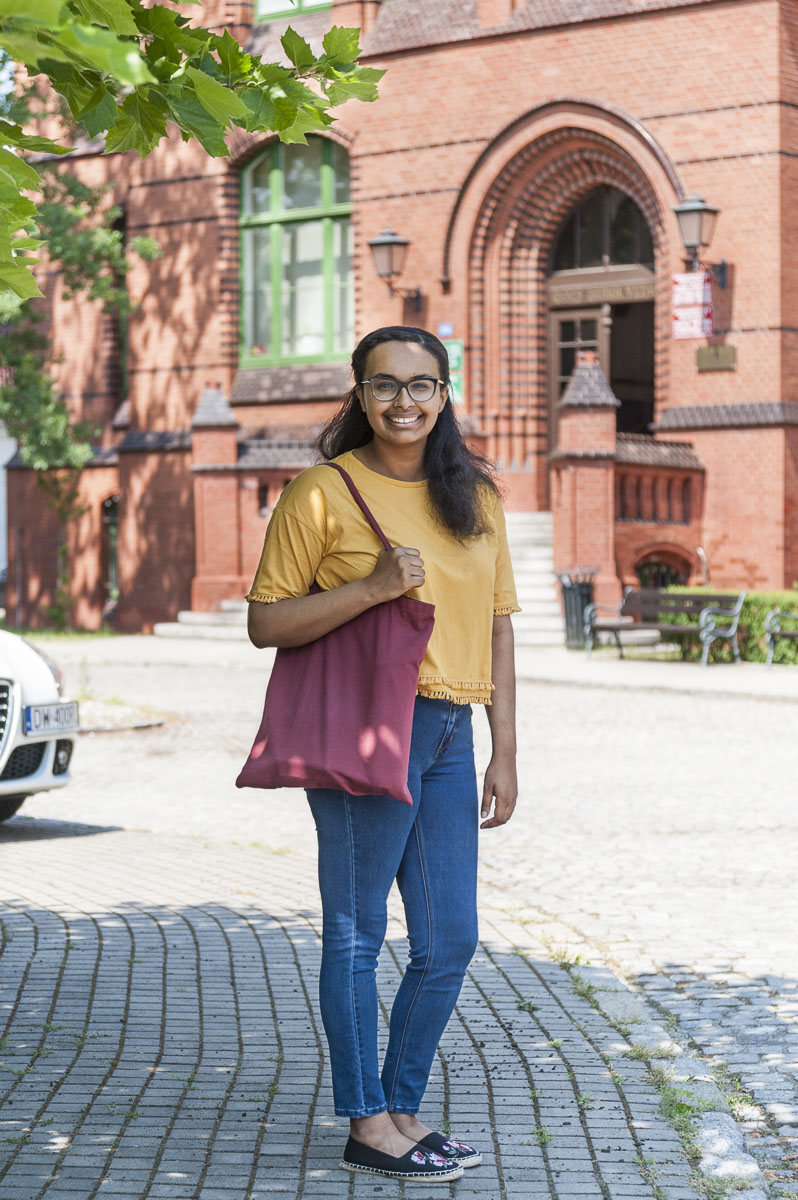The June edition of the University Newspaper celebrates the 15th anniversary of English Division and features interviews with ED students, who share their thoughts on the town and the university.
The first-ever bilingual edition of the University Newspaper features interviews with four ED medicine students – Nicole Hunter, Sawsan Saeid, Eren Aslan and Dominik Budzyna-Dawidowski. In addition, the authorities also share a few words about their experience with the ED faculty and plans for its nearest future.
The whole issue is available here and below we present a fragment of the interview with Sawsan Saeid, and ED graduate who wants to stay and have her internship in Poland.
If you won’t try, you won’t fly
- As a foreigner, I don’t think it’s wise to come to Poland, get your education and just leave. I think you have to truly experience the place and the people. The key thing is to always try speaking Polish – people appreciate it more than you know – says Sawsan Saeid, a 6th year English Division Medicine student, who is considering staying in Wroclaw after her upcoming graduation.

As a sixth year medical student, do you feel prepared to be a doctor?
If you had asked me a year ago I would have said no, but for some reason since the beginning of this year I’ve been feeling calm and ready.
What has changed?
Maybe it is the realisation that I’ve now learned all I need to learn, at least for medical school? Also, I’ve grown more independent and confident in regards to interacting with patients in Polish. Or perhaps it’s just natural to feel calm on your sixth year.
Do you think you’ve received a good education in Wroclaw?
Overall, yes. When I talk to my friends studying in the UK or the US, I’ve noticed that during my studies I’ve had slightly more opportunities than them. I’ve seen a wider variety of medical cases and had closer contact with patients. For example, the incidence of tuberculosis here is greater than in other Western countries. On a different note, I don’t know the number of successful hand transplants worldwide, but here I saw three cases in one day.
I like that the style of teaching is traditional, although to some students it might seem dated, especially if one is used to problem- based learning. It suits me better, because I’m fine with sitting through lectures and I’m able to retain the information. I also like the fact that here, when you’re learning a subject, you get to know everything about it and not just the practical aspects. It’s like They teach you anatomy to be an anatomist… but to be honest, when it’s time to prepare for exams and I have to recall all this info, I don’t like it as much…
Did you consider studying in any other countries?
I did think about going to the UK, but ultimately two things attracted me to Poland. The first was that I could get a good education and not go bankrupt. Secondly, studying in Poland would force me out of my comfort zone. Also, my dad was a big influence and he recommended coming here. He studied at Wroclaw Medical University on a scholarship, back in the 70s. He had a really good time here, although he had to do his PhD on a typewriter (laugh).
So you’ve had a little bit of background.
Not really, because he was here in the 70s and obviously societies change. That is why I was reluctant at first because I didn’t know much about Poland, other than what I’ve read in history books, and I’d never been here before. Ultimately it worked in my favour, because I didn’t have any pre-conceived notions, negative or positive. Perhaps people coming here from neighbouring countries associate Poles with certain jobs or stereotypes and know more about the country’s politics, but I didn’t, and it helped me to keep an open mind.
Being open is one thing, but you can’t help being shocked when you’re thrown into a completely different cultural context.
What caught me off-guard at first was that I didn’t see anyone that looked like me. I’m used to multicultural societies, so that was a big thing. I was uncomfortable with the excessive staring in the first two years here, but I’ve learned that Polish people don’t necessarily stare because they have bad feelings towards you – they kind of just stare at everyone. I actually had an interesting encounter with two elderly women who were staring at me on the bus. So I just smiled at them and they smiled back and I was like “okay, smiling is the trick”. I also noticed that in this country it’s really important to be polite and to say “Dzień dobry”, even if you don’t know who the person is. I like that, it makes you feel more connected to people. I’ve come to know that a lot of Poles are very down to earth, friendly and open, especially if you’re willing to speak Polish or at least try.
All of the articles are available in the June issue of the University Newspaper.


